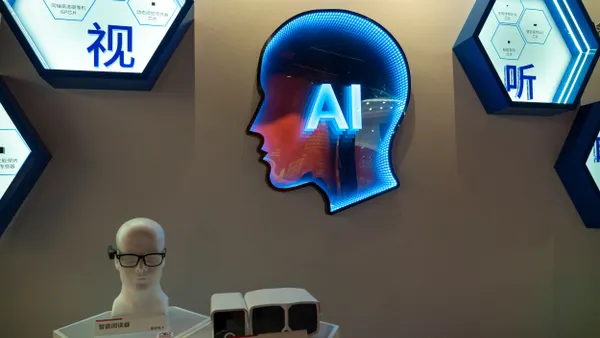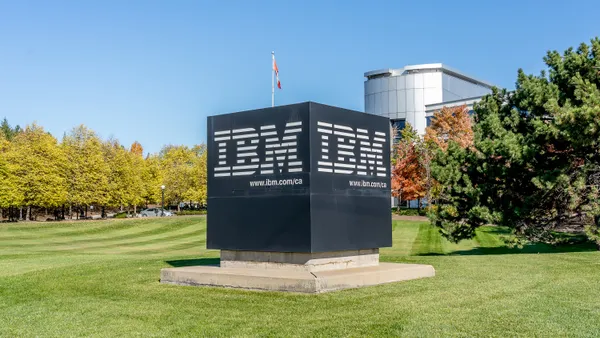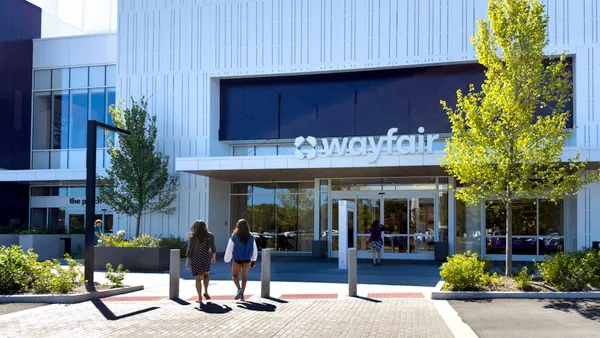The travel industry has changed a lot since the rise of the internet. In the past, a consumer would go to an agency and book travel accommodations via mail or over the phone. But now, the consumer has an abundance of choices and is able to hop online to book a hotel or stay in someone else's home through services like Airbnb.
In response, the hospitality industry has had to up its game, working to increase its digital presence to ensure consumers can easily access amenities. Rather than build solutions internally, companies in the travel and hospitality sector turn to Software as a Service platforms like TravelClick, which offers an e-commerce or reservation platform white-labeled to the hotel.
Founded in 1985, TravelClick has also had to modernize, working to ensure client's services easily come up in consumer searches and use data to help hotels drive revenue. For TravelClick CIO Joseph Eng, who spoke with CIO Dive at Interop ITX in Las Vegas, the challenge is to find and retain top talent while preparing the company for emerging technologies.
The following conversation has been edited and condensed.
How has technology changed for you in the last five years, and what have you had to do to keep up with those changes?
Eng: I think we're seeing our customers be much more understanding and wanting to apply technology in their business because they have to now have a digital presence and they have to find a way to be exposed to their customers. That's what we do.
We help them with that, so it's about website [and] mobile experiences. It's about how we now can help do media or digital campaigns, to place the hotel in places that you may be searching for, where you may want to stay so that they'd come up in the list so that you'd go check them out.
I think another example has been our customers, but also our employees. Everyone has more technology accessible to them — social media, mobile, smartphones, mobile technologies. Just in the way we work and we are a global company with offices around the world and a lot of people work remotely, we've had to apply collaborative technologies to help our company work together in this very distributed kind of way.
So we're big users of Microsoft Office 365 platform. But that's just been a push to say, we need to come up with technologies that are not traditional, that [assume] people are just in the office together. They're spread out all over the place. And they are used to Skype or FaceTime or all these things they're used to in their own personal lives. Why can't they do these things or something similar in the office? So that's been a pressure point to make that happen in the company.
The Microsoft Teams, the Slacks, the Atlassians — that's a whole market that's really emerged as a competitive space.
Eng: In my opinion, it's happened because this is where I think the consumer — the person that now has so much access to technology in their own personal lives — actually brings an expectation into their work environment. ... Why is it so different in the workplace?
And it's not just technology, we've had to spend a lot of time getting our colleagues to understand it, to use it. Because all these things only work when you have enough people using them. It's this network effect type of thing that we've had to push people to [use new tools].
What's the biggest challenge that you face internally in your organization with the application of technology?
Eng: One is talent. This is not technology, it's a person. But we can't do it without the people. We're all challenged in trying to retain, acquire more talent and build that team that can be more collaborative, that can be more nimble to the marketplace and getting more products or changes out to the marketplace.
But it's a challenge, because it's very competitive, especially in today's marketplace. It's a very hot market. How do you balance getting the talent? You still have certain cost or financial pressures. So that's been a big focus for us. Retaining the talent we have, figuring out how we use different mechanisms of onshore or offshore talent. And offshore is just another location in another time zone.
Then it goes back to some of the collaborative technologies we were talking about just a moment ago because all these people have to work together.
How are you approaching the talent problem in your hiring?
Eng: It's certainly about needing to acquire talent with the right hard skills. We have certain technologies we build with, we have certain things we do. We need to find people that know those technologies and can be skilled in those technologies. We happen to use Oracle technologies, so we need people that know Oracle versus maybe another company is using Cassandra, well we don't do that, so we don't care about those technology skills.
But the big thing that we're also focusing on is we need the people to work together. We have a certain culture, we have a certain way of working. We certainly are willing to evolve that, but we have a certain set of attributes that we think make us successful. So we've been very focused on understanding, that's the kind of culture we are and how do we better assess people that can work within that culture.
What is on your tech roadmap, both short and long term?
Eng: Data is so key. We have so much data. We are focusing on integrating that data and making that data available to a hotel through our other products. That will make these products smarter, allow the hotel to be able to make decisions about how they should price rooms, how they should make their inventory available to their potential shoppers, because the data won't help them make these decisions.
We're trying to integrate them, make the products much more analytical and much more data driven or analytical via the data that we have.
Is there a future technology you would like to apply to your business?
Eng: I know everyone says machine learning, because it's true. There are a lot of applications. Given our data business, we are starting to apply machine learning technologies in some of our businesses as well.
Given our data business, we're looking to figure out how we can get more insights out of the data — so machine learning technologies applied to the data we have. If it can generate more insights that we can help the hotel understand ... then the hotel can make some more informed decisions based on that. Machine learning is a way to cycle time or expedite that process.















